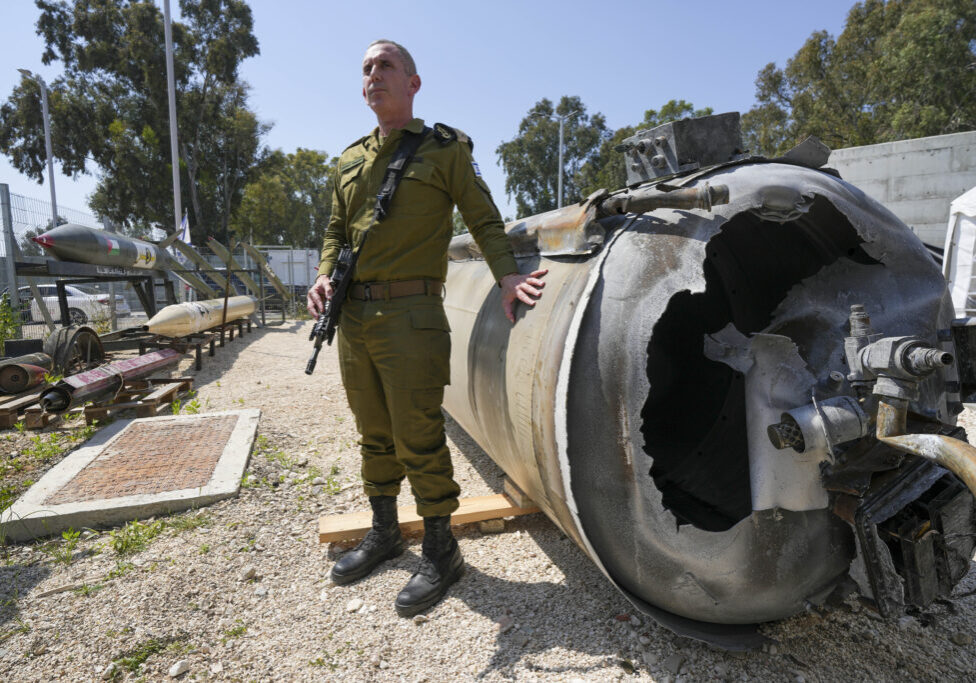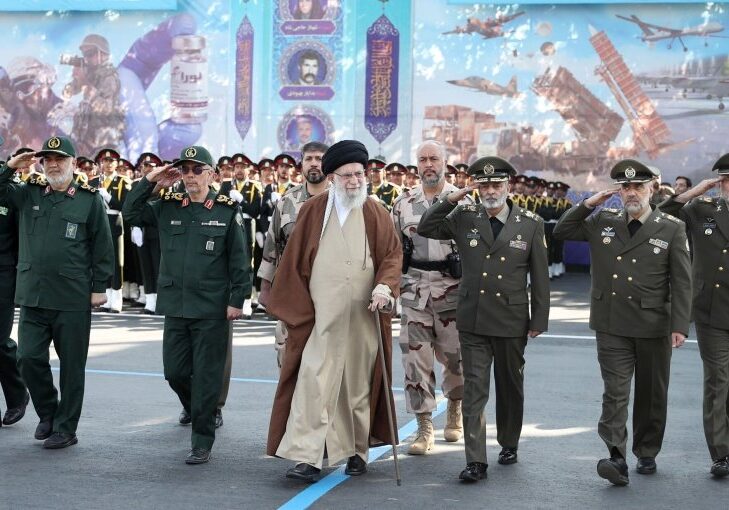Australia/Israel Review
As Egypt bleeds
Aug 27, 2013 | Amotz Asa-El

The implications of a tragedy
Amotz Asa-El
“We must get possession of Egypt,” wrote Napoleon two years before he sailed to Alexandria and marched on Cairo. More than two centuries later, Egypt’s military leaders likely thought something similar as their soldiers opened fire on Islamist demonstrators, leaving Western diplomats alarmed, Egyptian liberals unperturbed, and Israeli policymakers scrambling to remap a rapidly changing Middle East.
What began June 30 with mass rallies against then-President Mohamed Morsi’s governmental performance has since produced a military coup followed by an increasingly bloody crackdown on the ousted President’s following. Six weeks on, the democratic spirit that animated the removal of Egypt’s first freely elected leader has given way to violence that may mark the beginning of protracted strife, if not fully fledged civil war.
With hundreds shot dead on the streets of Cairo as the army and police stormed sit-ins that demanded Mohamed Morsi’s reinstatement, Western governments responded with wrath – mixed with confusion.
First, Denmark announced the suspension of an aid package to Egypt, then German Foreign Minister Guido Westerwelle said Egypt’s conduct will have to bear “consequences”, and then the European Union said it would review a long-term, €5 billion aid package. In Washington, meanwhile, President Barack Obama condemned the imposition of emergency rule and the crackdown that has left more than 600 dead and nearly 4,000 injured in the third round of live-fire clashes between troops and rioters in six weeks.
The violence follows a strategic decision by the Egyptian military to deem the Muslim Brotherhood an enemy, and a tactical choice to storm it head-on in order to quickly remove it from public life. This meant that besides locking horns with demonstrators, the interim government arrested hundreds of political and spiritual leaders, including the Brotherhood’s Supreme Guide Mohammed Badie, and was reportedly preparing to outlaw their movements and parties.
For America, the Egyptian escalation created a political embarrassment and a strategic predicament. Politically, many among the millions who helped oust Morsi blamed Obama for having betrayed Hosni Mubarak in winter 2011 and thus touching off the events that have now produced large-scale bloodshed. That is what Egypt’s Defence Minister and de-facto leader, Abdulfatah el-Sisi, meant when he told the Washington Post in reference to America: “You left the Egyptians. You turned your back on the Egyptians and they won’t forget that.”
Strategically, the White House seemed shorn of policy alternatives. Washington needs Cairo for commercial traffic through the Suez Canal and for military passage through Egyptian airspace en route to assorted operations in the Middle East and Central Asia.
That is why the US State Department avoided defining Morsi’s removal as a coup, a characterisation that would have legally compelled Washington to suspend its annual US$1.3 billion in predominantly military aid to Egypt. That is also why Obama’s condemnations and warnings did not even hint at touching US aid – instead making do with a slap on the wrist in the form of the cancellation of a joint military exercise.
American and European mediation between Egypt’s previous and current leaderships further infuriated the new leadership in Cairo, which saw these well-intended efforts as interference in Egypt’s internal affairs. With additional condemnations lobbed at Cairo even more loudly from Ankara, where Prime Minister Recep Erdogan said “there is no difference between [Syrian President Bashar] Assad and Sisi,” the Egyptian leadership’s sense of being under siege and spirit of defiance only intensified.
Against this backdrop of general pandemonium, one player, Israel, observed total silence.
As the Arab world’s cultural leader and political pivot, Israel’s southern neighbour has always been a central factor in Jerusalem’s assessment of it strategic environment, for better or worse. The significance of Egypt for the Jewish state’s future can therefore not be exaggerated. A hostile Egypt’s potential damage needs no elaboration, but even just an unstable Egypt would mean trouble, because Islamists terror groups have long eyed the Sinai Peninsula, which buffers between the two countries, as a springboard for attacks on Israel.
A New York Times report that Israel has been helping Sisi in Washington has therefore been generally seen as plausible, even though it was only vaguely attributed to Western diplomats in Cairo. Moreover, the report’s claim that Israel assured Sisi that US aid would not be cut off seems uncharacteristic of Jerusalem’s manner and beyond its purview. But more importantly, Israel can be expected to avoid taking sides in the Egyptian crisis, for the prosaic reason that it must consider a scenario whereby the Muslim Brotherhood resurges.
Indeed, Jerusalem has been very quiet about the Egyptian crisis from its inception, treating it as a purely internal affair that is none of Jerusalem’s business. An anti-Islamist salvo by Likud lawmaker Tzahi Hanegbi – previously chairman of the Knesset Defence and Foreign Affairs committee – was an isolated event. Prime Minister Benjamin Netanyahu reportedly told all government officials to avoid any public statements about the many current intra-Arab conflicts in general, and Egypt in particular.
Hanegbi may have expressed a widespread sentiment when he hailed Morsi’s removal because of the latter’s virulent anti-Israeli baggage. At the same time, Israeli defence officials stress that Morsi’s year in power saw constant and smooth cooperation in the field on military affairs. Similarly, Israeli diplomats note that early warnings of a political avalanche were dispelled. The Camp David Accords remained intact, along with the two countries’ diplomatic ties.
In this regard, Morsi’s departure is, paradoxically, partly negative from an Israeli viewpoint, because in maintaining ties with the Jewish state, Egypt’s Muslim Brotherhood was de-facto legitimising it in circles where Israel had traditionally been the devil incarnate. In any event, unlike the rest of the West, the Israeli effort is not to shape Egypt, but to decipher it and then find ways to harmonise as much as possible with whoever leads in Cairo.
For now, Israeli analysts agree that Sisi is emerging as a force to contend with, a charismatic and confident leader who may emerge as a new Nasser. At the same time, many analysts question his judgment, citing his arguable trigger-happiness and his failure to grasp the underdog advantage he unwittingly granted the Islamists just when they seemed to be running out of political luck.
At the same time, Israeli experts agree that the Islamists made almost every possible mistake following their improbable rise to power.
According to Prof. Eyal Zisser, Middle East expert at Tel Aviv University, Morsi’s greatest mistake was his dismissal last year of then-Defence Minister Hussein Tantawi. At the time, the move seemed like a well planned and brave measure designed to familarise the military with its new bosses, and touch off a transition of the sort Turkey’s military has undergone under that country’s Islamist leadership since last decade.
Instead, it eventually emerged that Morsi had shot from the hip and actually provoked the military with his move. His assumption that installing “his own” young general as Minister of Defence would make the military follow the Islamists’ lead proved simplistic – and fatal. Morsi’s appointee, General Abdel Fatah al-Sisi, soon betrayed his benefactor in broad daylight.
Evidently, Sisi and the rest of the defence establishment suspected Morsi and the Brotherhood were out to purge them, and decided to strike preemptively. What made the generals’ move unique was their deployment of people power, a novel element in the history of military coups, and the fig leaf that allowed Secretary of State John Kerry to deny Egypt had undergone a coup. Instead, Kerry praised Sisi, saying the General was actually helping restore democracy.
The question hovering above the entire crisis is: where does the Egyptian public stand?
For now, the Islamists seem to be failing to deploy the masses. Indeed, the most striking aspect of their stint in power has been their failure to arrive at the presidency armed with plans of action. Morsi’s refusal to abolish the country’s unaffordable food and gas subsidies, his failure to trim the bloated public sector, and his hope to live off of more and more foreign loans – few of which he managed to obtain – demonstrated an economic aloofness and ignorance for which the Islamists were ultimately made to pay.
At the same time, Israeli experts noted that misunderstanding of democratic rules of play plagued both sides of the Egyptian crisis.
The Islamists, observed Israel’s leading political scientist, Hebrew University’s Shlomo Avineri, displayed a winner-takes-all attitude that denied rights to minorities like Christians and women, and hammered away at any institution that might check their power. Then again, the liberals applauded the spectacle of the military forcibly removing from office and arresting an elected president. This goes even for Nobel Laureate Mohammed ElBaradei, who resigned from his position as interim Vice-President following the mid-August killings, but otherwise served the coup.
Having said that, the assessment in Israel is that the post-Islamist order will endure, as the army seems determined, organised and well led. Just how costly all this will prove for Egyptian society is of course a big question. Will the counter-Islamist revolution’s price be as exorbitant as Algeria’s civil war that followed the 1992 coup that annulled an Islamist electoral victory there, or will it be the relatively lower price paid by Chinese society following the Tiananmen massacre of 1989?
Weighty though such questions are, they are Egyptian questions. From an Israeli viewpoint, what matters is that Egypt will for now see the Islamists restored to their historic position of an illegal opposition while the government, officially or not, reverts to reporting to the military.
Speaking off the record, officials in Israel’s Defence Ministry say such an Egypt may prove more effective, from an Israeli viewpoint, on the two fronts that have been central to Egyptian-Israeli relations in recent years: Gaza and Sinai.
In the Sinai, the Egyptian military is expected to accelerate its war on the Islamist militants who have flowed into that desert in recent years. The killing of 25 policemen on Aug. 19, apparently by Islamist Bedouins, will underscore the urgency from Sisi’s point of view. In Gaza, the Hamas Government has alienated the Egyptian military by fully siding with Morsi – before, during and after his removal. The Egyptian military’s methodical efforts to end smuggling between Sinai and Gaza is believed to reflect a resulting impatience with the Hamas Government.
Indeed, other than Hamas, few in the Arab world have come out against the Egyptian coup. The Gulf states, led by Saudi Arabia, did not like Morsi’s revolutionary zeal, while Syria hated Morsi for his outspoken support for anti-Assad rebels. Saudi backing means Sisi will enjoy a financial cushion of which Morsi could only dream.
The new Egyptian Government’s fortunes will rise or fall on its ability to bring the relative stability that the Islamists failed to deliver. In the more likely event that it too fails to create jobs, cut inflation, improve education and build more houses, highways, cities and factories – chances are that ultimately, at the ballot-box or in the streets, the Egyptian people and their leaders will once again face off.
Tags: Egypt






